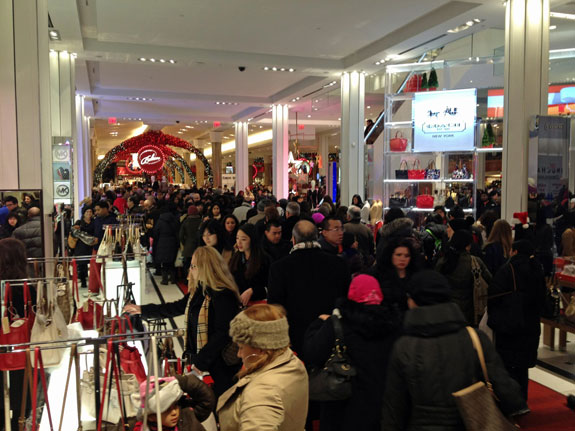Two of America’s most iconic retailers are shutting hundreds of stores, and experts think more closures will follow.
Walmart and Macy’s have recently announced store closures and layoffs. Walmart is closing 269 stores, including those under the Express, Neighborhood Market, and Supercenter names. Macy’s is closing 40 stores in the beginning of this year.
Analysts at RBC Capital Markets believe that this is part of a larger trend in retail, as more customers shop online instead of in stores.
“Macy’s announced store closings could have a number of implications on the overall retail landscape,” the analysts write. “We believe Macy’s decision will catalyze other specialty retailers and department stores to take a harder look at their boxes in these underperforming centers.”
Walmart’s decision to close stores highlights “how much the retail landscape has changed,” according to analysts at Conlumino, a New York-based research firm.
“The blunt truth is that while stores remain a vital part of the retail mix, they are not quite as relevant as they used to be,” according to Conlumino CEO Neil Saunders. “Walmart’s decision is part of a larger shift that will be played out across all parts of the retail sector over the coming year and beyond.”
Amazon is making driving to the store less appealing than it used to be.

Kim Bhasin / Business Insider
“There was a time when a local Walmart would be the go-to destination for certain products, mainly because of an absence of alternatives,” Saunders writes. “The growth of online, and especially of Amazon, has undermined that advantage and has given almost all consumers easy access to a comprehensive and relatively cheap assortment of products.”
Customers are spending limited funds on iPhones and Netflix subscriptions instead of sweaters and jeans. Discount-obsessed consumers are shopping at TJ Maxx and Ross Stores outlets instead of traditional department stores.
The closures create a domino effect for malls.
Once mall anchors like Macy’s and Sears close, it can be difficult for owners to find a tenant to replace them, said Howard Davidowitz, chairman of Davidowitz & Associates, a national retail-consulting and investment-banking firm.
More than two dozen malls have shut down in the last four years, and another 60 malls are on the brink of death, The New York Times reported earlier this year, Citing Green Street Advisors, a real-estate analytics firm.
“Teen retailers … are all a disaster, and these middle-level malls are killing them,” Davidowitz said.
